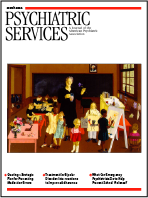Trauma and Tragedy in New York City
In Reply: We must not confuse human response to tragedy with pathology. To date, not a single published epidemiological study of PTSD after September 11 has been able to render diagnoses—the methods used were too limited. Common sense tells us that some small fraction of people surely met formal criteria for a mental illness as a result of the events of September 11, although the studies are unable to tell us how many. However, Dr. McQuistion's seeming eagerness to portray normal, if painful, reactions to a catastrophe as clinical sequelae only fuels the perception that citizens are psychologically fragile in the face of terrorism.



